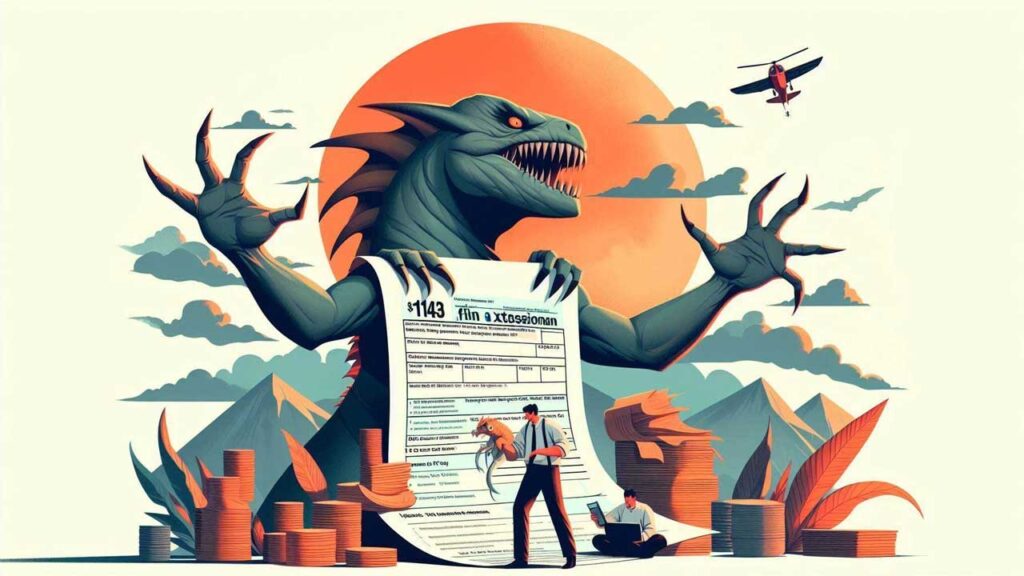Tax season can be a stressful time for many Americans, and with the deadline for filing taxes in the US being April 15, it’s essential to ensure that your taxes are filed on time to avoid penalties and other financial consequences.
If you miss the deadline, you may face a failure-to-file penalty, late payment penalties, and interest charges, among other consequences. In this article, we’ll explore what happens if you file taxes after April 15 and what you can do to avoid these penalties.
Failure-to-File Penalty:
If you fail to file your taxes by the deadline, the IRS can impose a penalty known as the failure-to-file penalty. This penalty is typically 5% of the unpaid taxes for each month or part of a month that the return is late. The maximum penalty for failure-to-file is 25% of the unpaid taxes.
This penalty can add up quickly, so it’s essential to file your taxes as soon as possible after the deadline to avoid this penalty.


Late Payment Penalty:
If you owe taxes and file late, you’ll also be charged interest on the amount you owe, increasing your total tax bill. The IRS can also charge a late payment penalty, which is usually 0.5% of the tax owed for each month or part of a month it remains unpaid.
This penalty can also add up quickly, so it’s essential to pay any taxes owed as soon as possible to avoid this penalty.
Refunds for Late Filers:
If you’re expecting a refund, there’s no penalty for filing late, but you won’t receive your refund until you file. The IRS can also hold your refund if you have unfiled returns from previous years. So, it’s essential to file all outstanding tax returns to receive any refunds you’re owed.
Requesting an Extension:
If you’re unable to file on time, you can request an extension, but this only extends the time to file, not the time to pay any taxes owed. You’ll still need to pay any taxes owed by the deadline to avoid penalties and interest charges.
Additional Scrutiny from the IRS:
Late filers may also face additional scrutiny from the IRS, potentially leading to an audit. The IRS may view late filers as more likely to have errors or discrepancies in their tax returns, so it’s essential to ensure that your tax return is accurate and complete to avoid any potential audits.
Tips for Filing Taxes on Time:
To avoid penalties, interest, and potential audits, it’s essential to file your taxes on time. Here are some tips to help you file your taxes on time:
- Keep accurate records throughout the year.
- Use tax preparation software or hire a tax professional to help you file.
- File electronically to ensure that your tax return is processed quickly.
- Set reminders for yourself to ensure that you don’t forget the deadline.
- If you’re unable to file on time, request an extension as soon as possible.
Filing taxes after April 15 can result in penalties, interest charges, and potential audits. It’s essential to file your taxes on time to avoid these financial consequences. By keeping accurate records, using tax preparation software or hiring a tax professional, filing electronically, setting reminders, and requesting an extension if necessary, you can ensure that your taxes are filed on time and avoid any potential penalties.








